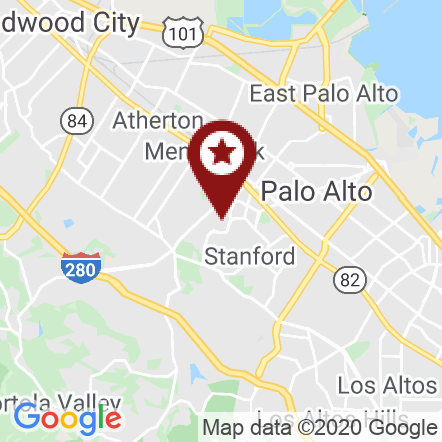Expertise
At the Hypertrophic Cardiomyopath Center at Stanford, you can expect:
- Coordinated care across generations of patients with hypertrophic cardiomyopathy, with connections to the Stanford Center for Inherited Cardiovascular Disease and Lucile Packard Children's Hospital
- A variety of hypertrophic cardiomyopathy treatment options including implantable cardioverter defibrillator devices, our innovativemyectomy procedure, and alcohol septal ablation
- Cutting-edge research to learn more about the future management of hypertrophic cardiomyopathy, particularly into the molecular genetics of cardiomyopathy
Many new diagnostic tools and therapies are developed here and Stanford patients are often among the first to benefit when new treatments come to clinical trials.
In addition, Stanford cardiologists were among the first to perform alcohol septal ablation, a less invasive technique to remove thickened heart muscle which many patients consider. Here at Stanford Health Care, we will help you make the best decision for your future care.
Family planning
At Stanford Health Care, we aim to define the future management of hypertrophic cardiomyopathy. Stanford is world-renowned for research into the molecular genetics of cardiomyopathy. Our genetic counselors are also available to help patients with hypertrophic cardiomyopathy who are planning to have children.
Genetic counseling
Patients with hypertrophic cardiomyopathy will meet with a genetic counselor. This meeting will include a discussion of what genetic testing is available for your condition and how such testing can help you and your family members. By reviewing your family history the genetic counselor will help you identify which family members are at risk to have the inherited cardiovascular condition that's running in your family.
We will give you and your family recommendations for how to check for the development of heart problems in at-risk family members as well as any steps that can be taken to prevent heart problems. The genetic counselor can also provide support and counseling to help you and your family deal with the emotions that arise when someone in the family has an inherited condition.
Pediatrics
Through close connections with the cardiology division of Lucile Packard Children's Hospital, we facilitate care across generations. If required, we can even coordinate center visits for you and your children.
Inpatient care
Your pre-operative, peri-operative, and post-operative care will be managed by our multidisciplinary team. Our team works together to ensure the best quality of care for you during your stay with us. This team includes surgeons, anesthesiologists, nursing staff, case managers, social workers, physical therapists, occupational therapists, respiratory therapists, pharmacists, and a dietitian.
Imaging
We use a variety of advanced imaging tools to monitor your heart and determine your care plan. For example, an electrocardiogram helps us learn more about your heart rhythm and heart size. Through an echocardiogram, we are able to see your heart beating in real time, and watch how blood travels through the various heart valves. An MRI provides additional detail watching your heart at work.
Exercise physiology
Hypertrophic cardiomyopathy often affects young and athletic individuals. We have close links with the Stanford Sports Medicine division and maintain an active interest in athletes with cardiovascular abnormalities and the appropriate screening of athletes pre-participation.






